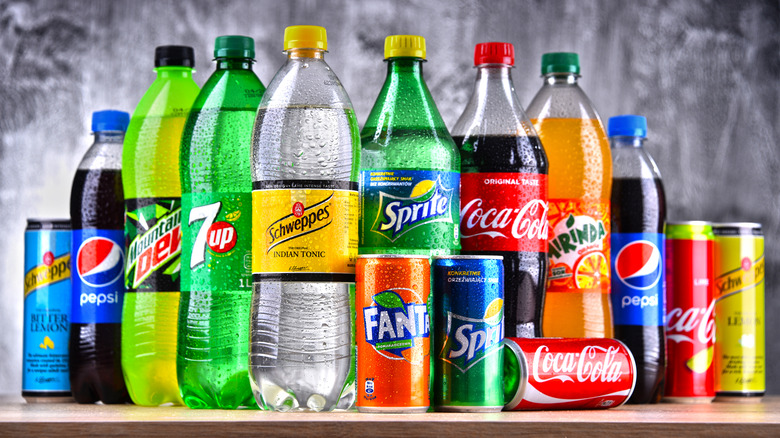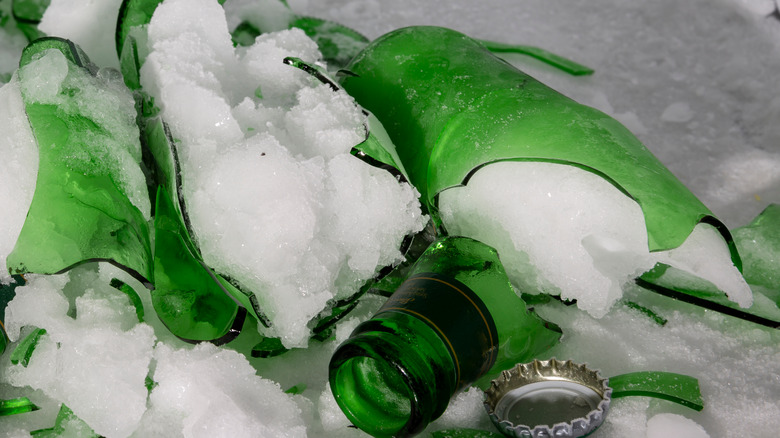You Should Never Freeze Carbonated Drinks. Here's Why
There are few things better than an iced cold drink to quench your thirst on a hot, sunny day — it's refreshing to gulp a cool, bubbly liquid and relax in the shade. If you can't get your favorite soda or carbonated beverage cold quickly enough, you might be tempted to place it in the freezer to speed the process up. It turns out that this is not a good idea and can result in a mess if the drink bursts. A gooey puddle with possible shards of the glass or aluminum container can be a real pain to deal with. For this reason, Eat By Date is adamant when they caution readers to avoid freezing soda.
While sipping on a freezing cold bottle of Mountain Dew or a frosty can of Coke sounds supremely satisfying, freezing one of these beverages could create an unpleasant situation that is completely avoidable. To understand why you should never put one of these drinks in the freezer, you can learn the science behind what happens when a carbonated liquid is subjected to low temperatures.
Carbonated beverages can become pressurized
The Children's Museum Indianapolis explains that when it comes to carbonated beverages in the freezer, the water can cause your bottle or can to burst. While most liquid contracts as it freezes, water expands to take up more space. Unfortunately, the container that holds your favorite sparkling water or soda stays the same size. Eat By Date notes that when you add this expansion to the pressure of carbonation, it can lead to an explosion and a sticky, syrupy mess you'll have to clean up.
If you are lucky enough to return to the freezer after a few hours and the can hasn't exploded, be sure to place it in the refrigerator to let it thaw before opening (via Eat By Date). As CBS News reported, it can still explode when you go to open it. This can be potentially dangerous if the container breaks close to your body.

